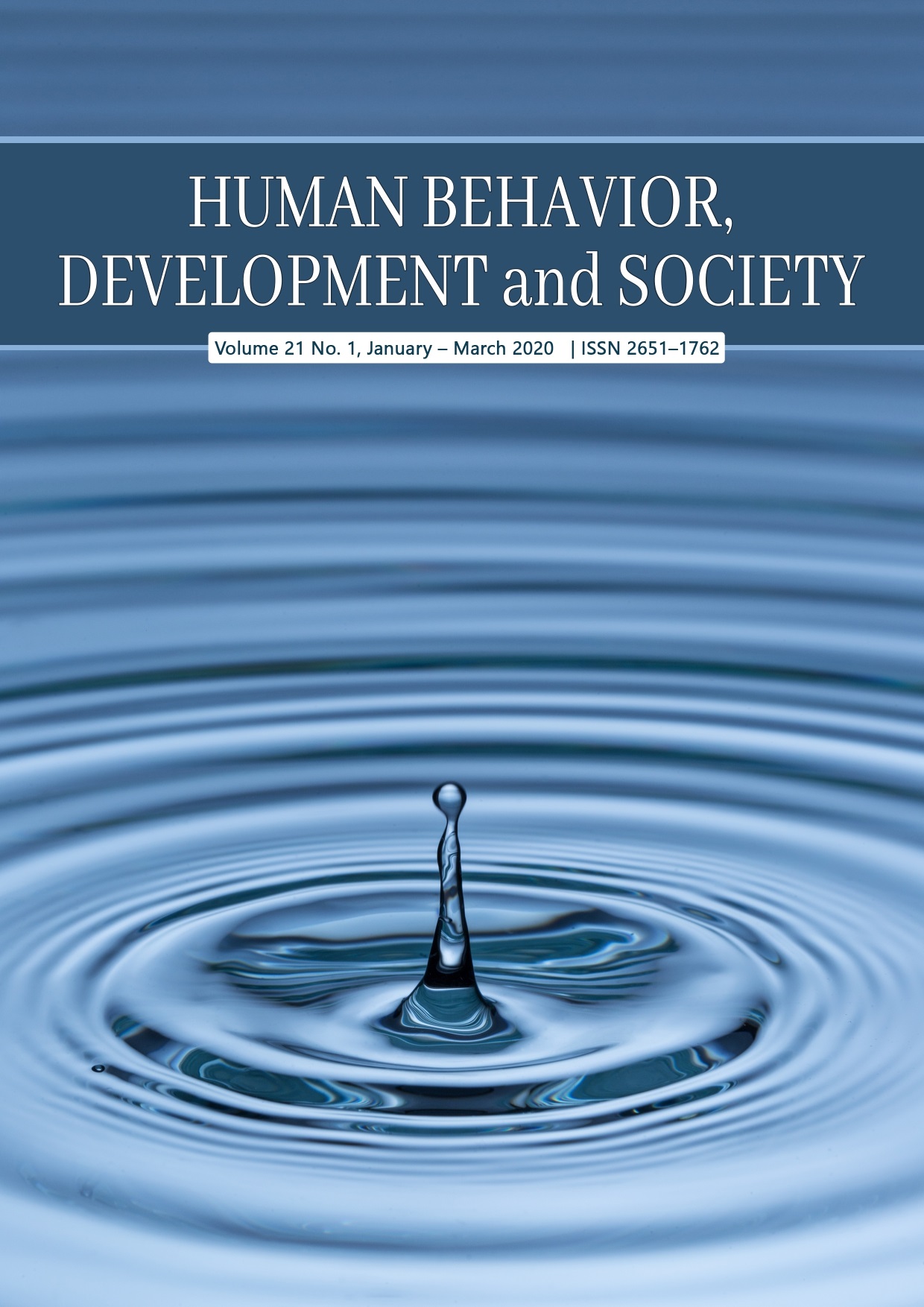Awareness and Practice of Standard Precautions for Infection Control among Student Nurses
Main Article Content
Abstract
Infection control knowledge is critical among healthcare providers. This study sought to determine the awareness and practice of standard precautions (handwashing, safe handling of needles and other sharp devices, and disposal of contaminated materials) for infection control among student nurses. Students (N=121) were surveyed through purposive sampling. Respondent awareness was very high to excellent for practices involving handwashing along with proper handling and disposal of contaminated materials, with very good practice in the safe handling of sharps. There was a statistically significant positive relationship between awareness and practice in the handling and disposal of contaminated materials. However, no such relationship was shown with handwashing and safe handling of sharps. Year level and gender did not make any significant difference in safety practices. However, year level and gender were significant predictors of the practice of standard precautions for infection control in terms of safe handling of sharps, wherein students at higher training levels tended to have better practices. Awareness was a significant predictor of the practice of standard precautions involving proper handling and disposal of contaminated materials; the higher the awareness, the better was the practice. This study affirmed that awareness of standard precautions for infection control promoted better practice.
Article Details

This work is licensed under a Creative Commons Attribution-NonCommercial-NoDerivatives 4.0 International License.
Copyright: Asia-Pacific International University reserve exclusive rights to publish, reproduce and distribute the manuscript and all contents therein.
References
Aboelela, S., Stone, P., & Larson, E. (2012). Effectiveness of bundled behavioural interventions to control healthcare-associated infections: a systematic review of the literature. The Hospital Infection Society, 66(2), 101–108.
Acharya, A., Khandekar, J., Sharma, A., Tilak, H., & Kataria, A. (2013). Awareness and practices of standard precautions for infection control among nurses in a tertiary care hospital. Nursing Journal India, 104(6), 275–279.
Barikani, A., & Afaghi, A. (2012). Knowledge, Attitude and practice towards standard isolation precautions among Iranian medical students. Global Journal of Health Science, 4(2), 142–146.
Burton, L. (2017). What methods can be used for the disposal of infectious waste? TheHub. Retreived from https://www.highspeedtraining.co.uk/hub/disposal-of-infectious-waste/
Centers for Disease Control and Prevention. (2017). Handwashing: clean hands save lives . Retrieved from https://www.cdc.gov/handwashing/when-how-handwashing.html
Foley, M., & Leyden, A. T. (2000). American Nurses Association – Independent study module Needlestick Safety and Prevention. Retrieved from https://www.who.int/occupational_health/activities/1anaism.pdf
Hamadah, R., Kharraz, R., Alshanqity, A., AlFawaz, D., Eshaq, A., & Abu-Zaid, A. (2015). Hand hygiene: Knowledge and attitudes of fourth-year clerkship medical students at Alfaisal University, College of Medicine, Riyadh, Saudi Arabia. Cureus, 7(8), 310.
Hammoud, S., Ghazi, B., Nassredine, M., & Haidar, M. (2017). Nurses’ awareness of infection control measures, and the role and effect in patient and family education. European Scientific Journal, 13(27), 59–76.
Hraishawi, T., & Naji, A. (2015). Impact of nurses' knowledge upon the infection control in primary health care centers at AL-Amara City. Kufa Journal For Nursing Science, 5(2), 1–10.
Iliyasu, G., Dayyab, F., Habib, Z., Tiamiyu, A., Abubakar, S., Mijinyawa, M., & Habib, A. (2016). Knowledge and practices of infection control among healthcare workers in a Tertiary Referral Center in North-Western Nigeria. Annals of African Medicine, 15(1), 34–40.
Kulkarni, V., Papanna, M., Mohanty, U., Ranjan, R., Neelima, V., Kumar, N., . . . Unnikrishnan, B. (2016). Awareness of medical students in a medical college in Mangalore, Karnataka, India concerning infection prevention practices. Journal of Infection and Public Health, 6(4), 261–268.
Lee, S., Park, J., & Jo, N. (2017). Influence of knowledge and awarenesson nursing students’ performance of standard infection control guidelines. Journal of Korean Academy of Nursing Administration, 23(4), 347–358.
Luo, Y., He, G., Zhou, J., & Luo, Y. (2010). Factors impacting compliance with standard precaution in nursing, China. International Journal of Infectious Diseases, 14(12), e1106–e1114. doi: 10.1016/j.ijid.2009.03. 037
Mathur, V., Dwivedi, S., Hassan, M., Misra, R. (2012, April). Knowledge, attitude, and practice about biomedical waste management among healthcare personnel: A cross-sectional study. Indian Journal Community Medicine, 36(2), 143–145.
Mehta, Y., Gupta, A., Todi, S., Myatra, S., Samaddar, D., Patil, V., Bhattacharya, P., & Ramasubban, S. (2014). Guidelines for prevention of hospital acquired infections. Indian Journal of Critical Care Medicine, 18(3), 149–163.
Samson-Akpan, P., & Bassey, P. (2012 ). Knowledge-based and practice of infection control among nurses in immanuel general hospital, Eket, Akwa Ibom State. West African Journal of Nursing, 26(1), 65–81.
Suliman, M., Al Qadire, M., Alazzam, M., Aloush, S., Alsaraireh, A., & Alsaraireh, F. (2018). Students nurses knowledge and prevalence of needle stick injury in Jordan. Nurse Education Today, 60, 23–27. doi: 10.1016/j.nedt.2017.09.015.
Tufail, S., Afzal, M., Perveen, K., Waqas, A., & Gilani, S. (2017). Knowledge, attitude and practice towards standard isolation precautions among registered nurses. Saudi Journal of Medical and Pharmaceutical Sciences, 3(6A), 534–544.
Wisconsin Department of Health Services. (2018). Infection control and prevention–Standard precautions. Retrieved from https://www.dhs.wisconsin.gov/ic/precautions.htm
World Health Organization (2018). Health-care waste. Retrieved from https://www.who.int/mediacentre/ factsheets/fs253/en/


